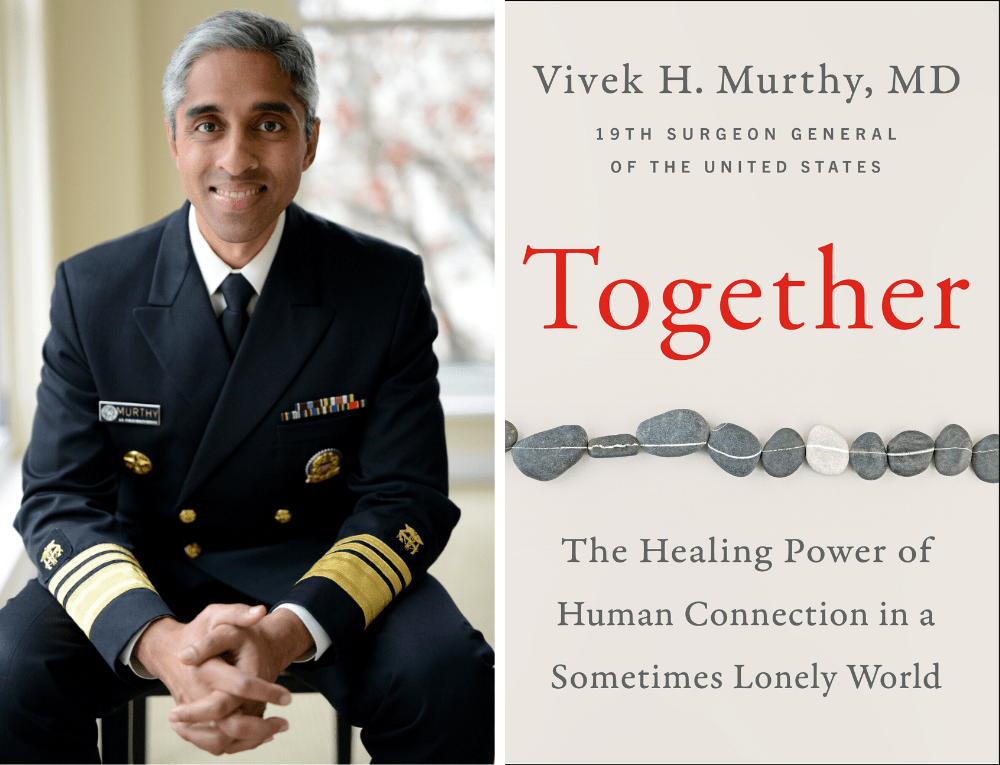Advertisement
Former U.S. Surgeon General On The Front Line Of Another Health Crisis: Loneliness
Loneliness is more than just a bad feeling. About 60 percent of American adults say they're struggling with loneliness, according to a 2020 survey by Cigna. It's so prevalent that the former U.S. Surgeon General Vivek Murthy declared loneliness as a public health crisis in our country.
"Many people feel that if they're lonely, that means that they're not likable or that they're broken in some way," Dr. Murthy said. "If we want to ultimately address loneliness, we have to figure out how to eradicate that stigma and help people see loneliness for what it is, which is a human condition, that all of us experience at some point in our lives."
Dr. Murthy didn't plan on making loneliness the subject of his tenure as Surgeon General. But after traveling the country and listening to people's stories about issues in their community, like violence and the opioid epidemic, he recognized a pattern:
"Behind those stories were so many threads of loneliness where people would often say, ‘I feel I have to deal with all of these challenges by myself,’ or, ‘I feel if I disappear tomorrow, no one would even notice,’ or ‘I feel invisible,'" he said. "Hearing that again and again — from college students, from parents, from people in remote fishing villages in Alaska to members of Congress in Washington, D.C. — it struck me that something deeper was happening here."

After years of research, Dr. Murthy published his book, "Together: The Healing Power of Human Connection in a Sometimes Lonely World." He spoke to us about his findings, what inspired him to focus on this topic and how we can be more "people-centered" in a socially distanced world.
Interview Highlights
How damaging is loneliness?
Dr. Vivek Murthy (VM): "Loneliness is associated with an increased risk of heart disease, of depression, of anxiety, of premature death, of sleep disturbances, of dementia, of impaired wound healing, and the list goes on. When studies have actually looked at the mortality impact associated with loneliness, what they have found is that that mortality impact is similar to the mortality impact seen with smoking 15 cigarettes a day."
On the connection between loneliness and racism
VM: "When people tell you that you're less-than and that you don't matter and that you’re inferior, you internalize some of that. For me, as a child, I remember reacting to it by withdrawing further and further into my shell. And here's the thing about loneliness that is so challenging: When we feel disconnected from other people, you would think, well, our instinct should be to reconnect. But there's a paradoxical set of wheels that are set in motion, if you will, that actually function to deepen our loneliness when we experience loneliness. And so when we feel separated from other people, whether that's because we don't have the connections around us that we used to have or because we're feeling ‘othered’ and made to feel inferior and isolated, we enter into this stress state, and in that stress state, because we're worried about our safety, our focus turns increasingly inward. We also become hyper-vigilant, more likely to perceive threats around us. And we also experience this erosion of self-esteem as over time, we can come to believe that maybe the reason we’re being ‘othered,’ maybe the reason we're alone is because there's something wrong with us."
Advertisement
On the Men's Shed movement, one of many examples of community-wide efforts that are combatting loneliness in vulnerable populations:
VM: "The idea was that if people came together to work shoulder to shoulder, that they were more likely to connect with each other and that would lead to dialogue. And for thousands and thousands and thousands of men around the world, Men's Sheds have become part of their community. And in the UK, they have found that men who participate in these sheds experienced significant reduction in depression and anxiety and loneliness."
On embracing moments of solitude:
VM: "It turns out that our ability to connect with other people is driven by our ability to connect deeply with ourselves. And that can be just a few minutes sitting on your porch feeling the breeze against your face. That can be a few moments spent in meditation or in prayer or remembering three things you're grateful for ... However we find our solitude, we all need to anchor ourselves. And when we approach other people from that place of being rooted, we're more able to listen to them, to focus on them and to forge a stronger connection with other people.”
Guest
- Dr. Vivek Murthy, former U.S. Surgeon General and author of "Together: The Healing Power of Human Connection in a Sometimes Lonely World." He tweets @vivek_murthy
